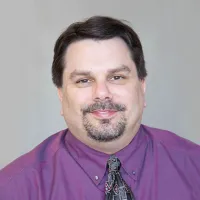
Clean Hands to Save Lives
It’s been repeated continuously as one of the first preventive measures during the COVID-19 pandemic: wash your hands for at least 20 seconds. But what if soap and water aren’t readily available?
Alcohol-based hand sanitizer is an effective alternative, and the Science Policy Group at UCSF (SPG) has initiated a project to provide sanitizer to incarcerated populations, as well as people living in public or transitional housing or experiencing homelessness.
The project began as a joint effort between the San Francisco Democratic Socialists of America, who put forth funding and volunteers, and SPG. SPG launched a GoFundMe campaign on April 12, 2020, to procure supplies, manufacture and distribute the sanitizer and also received funding from the California Wellness Foundation for the initial phase.
While some correctional facilities have reduced their inmate population, COVID-19 outbreaks continue to be of growing concern. As social distancing is not an option, inmates must rely on secondary measures like hand sanitizer use to prevent COVID-19 spread.
Elina Kostyanovskaya, PhD, a graduate student in Developmental and Stem Cell Biology at UCSF and an SPG leader, was especially concerned by the humanitarian and public health crisis associated with a potential COVID-19 outbreak among incarcerated people. In response, she and other SPG members (Jack Stevenson, Thomas Pospiech, Antara Rao, Larissa Maier, Clio Korn) have manufactured hand sanitizer in accordance with World Health Organization protocol.
The group not only manufactures but also bottles, labels, affixes educational pamphlets and distributes.
“People tend to dehumanize people who are incarcerated, so the focus, for the most part, has not really been on serving these communities,” Kostyanovskaya said.
“But jails and prisons are actually a relatively unique congregate setting in that not only are people unable to socially distance but these facilities also are not closed systems. You have hundreds or thousands of staff moving in and out of them every day, and any one of them could be an asymptomatic carrier of COVID-19. As we’ve already seen around the country, outbreaks in jails spread quickly, can be deadly and have the potential to overload nearby hospitals.”
As of Monday, May 4, SPG has distributed hand sanitizer to 23,760 people living in congregate settings in the Bay Area, 21,300 of which are incarcerated.
Altogether, SPG has manufactured and delivered 742 gallons of hand sanitizer refills to people living in congregate settings in six state prisons and eight jails as well as underserved communities.
In partnership with actor (Last Black Man in San Francisco) and community organizer Jamal Trulove, the group has been supplying sanitizer and educational materials to historically underserved public housing complexes and communities of color. The group has distributed:
- 17,400 bottles of sanitizer for each inmate in San Quentin State Prison, California State Prison- Solano, Folsom State Prison, Folsom Women’s Facility, Mule Creek State Prison, and California Medical Facility (prison).
- 1000 bottles-worth for all SF County Jails, with refills. We will continue to serve and refill SF County Jails until the end of the shelter-in-place.
- 1000 bottles for all San Mateo County Jails (Maple Street Correctional facility & Maguire Correctional Facilities
- 1900 bottles for Santa Rita Jail in Alameda County.
- 2300 bottles of hand sanitizer for public housing complexes/underserved communities, including Sunnydale, Oakdale, Filmore, Harvard Row, Westpoint, Portrero Hill, Alemany, Holly Court and more
- 250 bottles at San Francisco-Marin food bank at Bessie Carmichael Elementary School.
- 160 bottles-worth to Homeless Youth Alliance
The next batch of hand sanitizer will be distributed ~10,000 people incarcerated in California prisons as well as in underserved communities around the country.
We will continue to produce and distribute about 250-300 gallons of hand sanitizer per week.
“Hand sanitizer and information are both powerful tools to help at-risk communities stop the spread of COVID-19,” Kostyanovskaya said. “As scientists, we have the ability to provide both. In the midst of a pandemic and uneven resource distribution, we have to provide both. We all do what we can.”
Those interested in making a tax-deductible donation can reach out to elina.kostyanovskaya@ucsf.edu.



